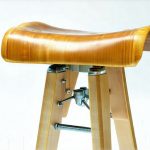Constipation, in its many forms, is an incredibly common experience. While often dismissed as a minor inconvenience, chronic constipation can significantly impact quality of life, leading to discomfort, bloating, and even more serious digestive issues. Many factors contribute to this pervasive problem – dehydration, lack of fiber, stress, certain medications – but one frequently overlooked culprit lies in the widespread avoidance of natural fats within modern diets. For decades, dietary guidelines often demonized fat, promoting low-fat alternatives that have inadvertently contributed to a decline in healthy fat intake and an increase in digestive problems like hard stools and difficult bowel movements. This isn’t about advocating for unlimited butter or bacon; it’s about understanding the crucial role fats play in maintaining a healthy digestive system and how their absence disrupts this delicate balance.
The historical demonization of fat led to a surge in processed foods marketed as “low-fat” or “fat-free.” These products frequently compensated for the lack of flavor and texture by increasing sugar, refined carbohydrates, and artificial ingredients. While seemingly healthier on paper, these substitutions often worsened overall health and significantly impacted gut function. Natural fats, on the other hand, are essential components of cell membranes, hormone production, and nutrient absorption. More importantly for our discussion, they act as a natural lubricant within the digestive tract, facilitating smooth passage of stool. When we consistently deprive ourselves of adequate healthy fats, we essentially remove this internal lubrication, leading to drier, harder stools that require more effort – and sometimes pain – to eliminate. This isn’t simply about quantity; it’s also about quality—the type of fat matters greatly. If you struggle with frequent nausea alongside constipation, exploring underlying causes is important.
The Role of Fats in Digestive Health
Fats are not the enemy; they are integral to a functioning digestive system. They stimulate bile production from the gallbladder, which is essential for breaking down and absorbing fats and for moving waste through the intestines. Bile acts like a natural detergent, softening stool and aiding peristalsis—the wave-like muscle contractions that propel food along the digestive tract. Without sufficient fat intake, bile flow can become sluggish, leading to constipation and potentially even gallbladder issues over time. Furthermore, fats contribute to the feeling of satiety (fullness), which helps regulate appetite and prevents overeating, indirectly supporting a healthier gut environment.
The type of fat consumed also matters significantly. Highly processed vegetable oils, often found in pre-packaged foods, can be inflammatory and disrupt the delicate balance of gut bacteria. In contrast, healthy fats like those found in avocados, nuts, seeds, olive oil, fatty fish (salmon, mackerel), and coconut oil provide essential nutrients and support a thriving microbiome – the community of microorganisms living in our digestive tract. A diverse and balanced microbiome is crucial for proper digestion, immune function, and overall health. Prioritizing whole food sources of fat over processed alternatives is paramount. Understanding how reflux symptoms vary can also help you pinpoint digestive triggers.
Consider this analogy: imagine trying to move furniture across a dry wooden floor versus one that has been waxed. The waxed floor (representing a gut lubricated by healthy fats) allows for easy movement, while the dry floor (representing a gut lacking sufficient fat) requires significantly more effort and can even cause damage. This simple illustration highlights how crucial fats are for maintaining digestive ease. You might also be surprised to learn can acid reflux be caused by something seemingly unrelated, like insufficient stomach acid.
Consequences of Chronic Low-Fat Diets & Hard Stools
Chronic low-fat diets don’t just lead to hard stools; they can create a cascade of digestive problems over time. Prolonged constipation, stemming from insufficient lubrication, can contribute to: – Hemorrhoids – caused by straining during bowel movements – Anal fissures – small tears in the anus – Diverticulitis – inflammation or infection of pouches that form in the colon – Impaired nutrient absorption – as food spends more time lingering in the digestive tract. Beyond these physical consequences, chronic constipation can also impact mental and emotional wellbeing, leading to feelings of discomfort, bloating, and anxiety.
The body adapts to what we consistently provide it with. If you’ve been avoiding fats for years, your gallbladder may have become less efficient at producing bile, and your gut microbiome may be imbalanced. This creates a vicious cycle where even small amounts of fat can trigger digestive upset or discomfort, reinforcing the avoidance behavior. Breaking this cycle requires a gradual reintroduction of healthy fats combined with strategies to support overall digestive health. It’s about retraining the digestive system rather than simply forcing it to cope with an inadequate diet. How to break the cycle can be a significant step towards better gut health.
The feeling of incomplete evacuation is another common symptom linked to low-fat diets and hard stools. This occurs when stool remains in the colon even after a bowel movement, leading to bloating, discomfort, and the urge to return frequently to the bathroom. It’s often a sign that more lubrication and fiber are needed to promote complete elimination.
Reintroducing Fats: A Gradual Approach
Reintroducing fats into your diet should be done slowly and strategically. Abruptly increasing fat intake can overwhelm the digestive system, leading to bloating, diarrhea, or nausea. The key is to start small and gradually increase the amount of healthy fats you consume over time, allowing your body to adapt. Here’s a step-by-step approach:
- Begin by adding one small source of healthy fat to each meal. For example, add half an avocado to your breakfast toast, sprinkle nuts or seeds on your salad, or drizzle olive oil over your vegetables.
- Monitor your body’s response and adjust accordingly. If you experience digestive discomfort, reduce the amount of fat or try a different source.
- Gradually increase the quantity and variety of healthy fats as tolerated. Experiment with different options like coconut oil for cooking, fatty fish twice a week, and nut butters as snacks.
Focus on incorporating whole food sources of fat rather than relying on supplements. Supplements can be helpful in some cases, but they should not replace a balanced diet. Also, pay attention to how your body responds to different types of fats—some individuals may find certain fats easier to digest than others.
Fiber’s Synergistic Role
While fats provide lubrication, fiber provides bulk and structure to stool, aiding in its movement through the digestive tract. They work synergistically – fats lubricate, fiber bulks. A diet lacking both fat and fiber is a recipe for constipation. Increasing your fiber intake without adequate fat can actually worsen constipation if it leads to hard, dry stools that are difficult to pass.
- Soluble fiber (found in oats, beans, apples) absorbs water, softening stool.
- Insoluble fiber (found in whole grains, vegetables) adds bulk, stimulating peristalsis. Aim for a balance of both.
Hydration is also crucial when increasing fiber intake. Water helps soften stool and facilitates its movement through the digestive tract. Drink plenty of water throughout the day to prevent constipation.
Beyond Diet: Lifestyle Factors & Seeking Support
Diet is paramount, but other lifestyle factors can significantly impact digestion. – Regular physical activity – stimulates bowel movements. Even a daily walk can make a difference. – Stress management – chronic stress can disrupt gut function and contribute to constipation. Incorporate relaxation techniques like yoga, meditation, or deep breathing exercises into your routine. – Mindful eating – pay attention to your body’s signals of hunger and fullness. Eat slowly and chew your food thoroughly.
If you’ve made dietary changes and are still experiencing chronic constipation, it’s important to consult with a healthcare professional. They can help rule out underlying medical conditions and recommend appropriate treatment options. Do not self-diagnose or attempt to treat serious digestive issues without medical guidance. A registered dietitian can also provide personalized recommendations for optimizing your diet and improving your digestive health. Remember, addressing hard stools isn’t just about relieving discomfort; it’s about restoring a healthy gut and supporting overall wellbeing. Can gut issues sometimes have unexpected causes.


















